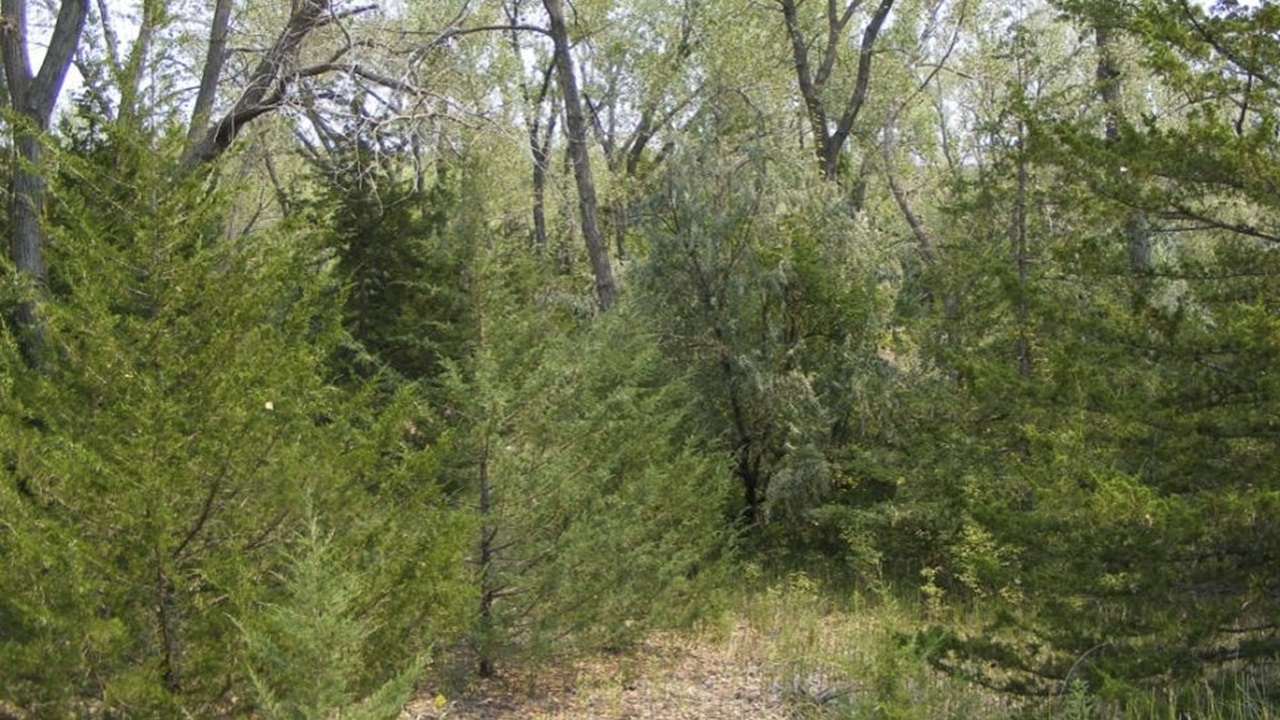Missouri River Institute Faculty Awarded Grant to Study Impact of Eastern Redcedar on Bird Populations Along the Missouri National Recreational River

In recent years, coverage of eastern redcedar (Juniperus virginiana) has expanded in riparian forests along the Missouri River as a function of flood control by dams. These forests are traditionally dominated by other riparian vegetation, primarily the Eastern cottonwood (Populus deltoides).
Cedar encroachment into riparian forests can have substantial ecological impacts, and cedar management in the region represents a highest-priority management concern for the MNRR.
Through the grant from the National Park Service, Missouri River Institute (MRI) researchers will examine the impacts of cedar expansion on riparian bird biodiversity and functional performance, such as refueling rates during migrations and thermal benefits during winter. They will use riparian forest birds as a proxy for terrestrial biodiversity and provide a full annual cycle assessment of the influence of cedars on bird biodiversity and functional performance within the MNRR.
Faculty involved in the project are David Swanson, Ph.D., Mark Dixon, Ph.D., Ranjeet John, Ph.D., and Omera Matoo, Ph.D., all from USD’s Department of Biology.
The grant will support a graduate student, undergraduate field research interns, equipment and supplies.
Their studies will identify the positive and negative impacts of cedars on bird biodiversity and performance and inform outcomes of the standard management practice of cedar removal from riparian habitats.
Data from this research will help guide the MRI in developing approaches of optimal cedar removal to best support bird biodiversity and conservation in the MNRR. Collectively, the outcomes of this grant will allow the MRI and its partners to align management strategies to help preserve the values that lead to the MNRR’s designation as a National Recreational River.
Located along the free-flowing Missouri National Recreational River, the Missouri River Institute explores the natural and cultural resources of the river through its focus on research, education and outreach. Learn more about MRI programs, partners and faculty.



